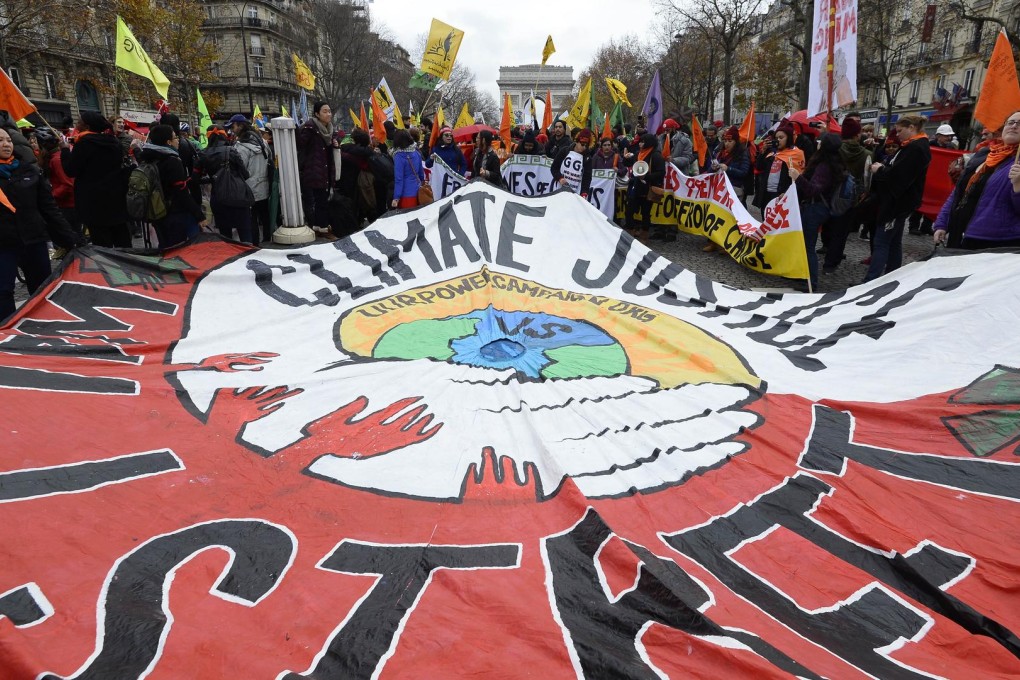'Final' global climate draft: French hosts submit 'historic and legally binding' UN climate-rescue accord
Pact to be endorsed by nearly 200 governments offers best balance possible, says French foreign minister as talks on global warming conclude

French Foreign Minister Laurent Fabius said a draft climate pact worked out after two weeks of talks in Paris was ambitious, balanced and if adopted would be a "historic turning point" to keeping temperature rises well below 2 degrees Celsius, while striving for a 1.5-degree limit.
Cracking with emotion after talks ran into a day of overtime, Fabius said the text that nearly 200 governments must now endorse constituted "the best balance possible".
A major debating point has been a promise that developed nations should provide US$100 billion to help poorer nations deal with the consequences of climate change. Fabius said the draft text would set that figure as a floor by 2020. It also includes a five-year review system for countries setting targets to cut domestic emissions.
French President Francois Hollande said: "This text will, if you should so decide, be the first universal agreement in history on climate change."
READ HERE: The published 'Paris Agreement'
He told delegates that in the coming hours "you will make a choice for your country, for your continent, but also a choice for the world. It will be a major leap for mankind. History is here".
The plenary was expected to reconvene later in the afternoon yesterday (Paris time), where ministers would make final revisions before they adopted the historical deal.